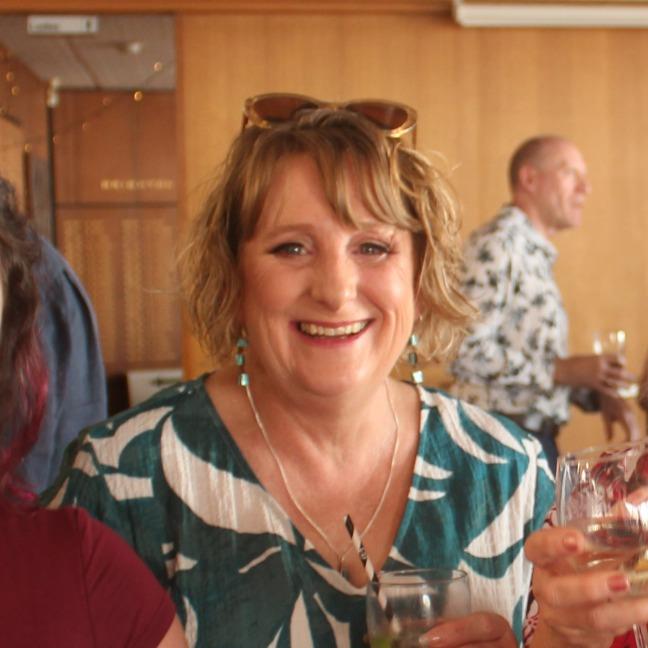
About Kylie
Kylie is relatively new to her role as a Volunteer Coordinator with Southern Adelaide Palliative Service (SAPS), and approaches her interactions with volunteers as colleagues, rather than as a manager. Kylie likes to listen to those in palliative care roles – there is much to learn from their experience. It takes a village to support people through palliative care and Kylie is thankful SAPS volunteers are a part of that.
Q&A Interview:
Disclaimer: The views expressed are the opinions and thoughts of our interviewees, reflecting on their own experiences and views.
We have recently introduced biography sessions to Laurel Hospice. This was perfect timing for a young family, whose dad had a life-limiting illness. He was able to tell his story to one of our wonderful biography volunteers, and together over a week, worked to create his story. It was handed over to him and his family just a day before he died. Feedback from his wife is heartwarming, noting that he wrote a very special story about their love story, his hobbies and interests. Through this story, his kids will know their dad – that is just incredible to me.
Wow that’s a big one! The volunteers take away the weight from some patients who thought there was no-one out there for them. Our volunteers have an unbiased approach, they are there just to support. Our volunteers are meeting them in the here and now, they hold no pre-conceived ideas about the person. This enhances a life, and allows the palliative patient to just be themselves, without the need to be strong out of concerns for their family. They can be who they want to be.
I think, with technological advances, this will open the door to more volunteers. We are already seeing that some patients are not comfortable perhaps having someone in their home and may find good benefit through zoom calls for a chat, or reading the newspaper together.
Volunteer numbers may increase also with this service, because people are often time poor and can communicate with someone virtually, instead of using travel time.
There is an opportunity for growth in more ad-hoc volunteering, for example – someone being happy to pop in to cook a meal or a quick tidy, for which someone may need a break from. This service will allow the carer to simply sit and be present. Small things can make a big difference.
In Laurel Hospice, there are always pressures. Volunteers fill the need in presence and unhurried time. Volunteers can’t do manual handling, or medical type tasks, but they can have a good chat and love to listen. Active listening can make such a difference to anyone that needs to have a say. Silence is golden. It provides an opportunity to give voice to concerns in an accepting and non-judgmental space.
We offer debriefing sessions to our volunteers, and an opportunity to speak with members of our team. We can also organise a chat session, which involves whoever is involved in the patient’s care the volunteer is supporting.
Client contact forms are an essential form of communication from our volunteers. These identify any changes in the palliative patient since the last visit and this is communicated with all members of SAPS. We also offer opportunities for volunteers to upskill themselves, e.g. on grief and loss training. We listen to what our volunteers want to learn about and follow their lead.
The biggest myth in Southern Adelaide Palliative Service is that everyone comes to Laurel Hospice to die. This is not the case! We look after people in many ways, for pain management, respite, in cases of homelessness, for a change of environment and for a boost – the patient has a life-limiting illness, and they may need to come in for a short while for what feels like a big warm hug. It’s a beautiful calming, loving environment and philosophy.

